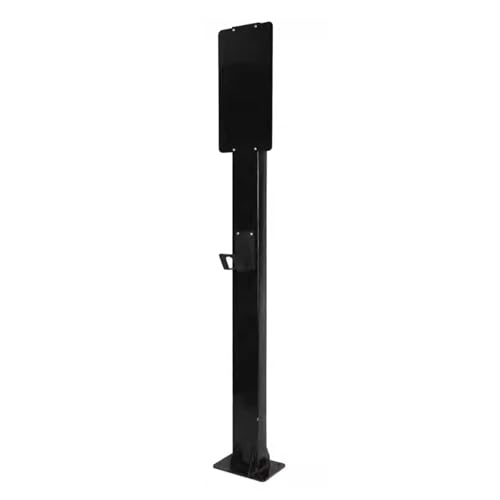To those that are able to gauge your charging levels (either using your own charger or public charging stations), what is the maximum amount of charge in kWh have you been able to put in your e-tron when the estimated range goes to zero? I have only been able to charge anywhere between 6.5 to 6.9 kWh using the ChargePoint station at work. I thought useable capacity for the battery is 7.7 kWh out of total 8.8 kWh?
You are using an out of date browser. It may not display this or other websites correctly.
You should upgrade or use an alternative browser.
You should upgrade or use an alternative browser.
Charging capacities
- Thread starter bruintoo
- Start date

Help Support Audi A3 E-tron Forum:
This site may earn a commission from merchant affiliate
links, including eBay, Amazon, and others.
In the US, the usable capacity is 6.0kWh; I think this is due to the difference in US emissions. You're seeing 6.5 - 6.9 kWh due to ~10% efficiency lost due to charging or pre-conditioning.bruintoo":29fzox0t said:To those that are able to gauge your charging levels (either using your own charger or public charging stations), what is the maximum amount of charge in kWh have you been able to put in your e-tron when the estimated range goes to zero? I have only been able to charge anywhere between 6.5 to 6.9 kWh using the ChargePoint station at work. I thought useable capacity for the battery is 7.7 kWh out of total 8.8 kWh?
I found this from Audi's Online Magazine: http://audi-encounter.com/magazine/tech ... e-volt-age
The lithium-ion battery in the Audi A3 Sportback e-tron stores 8.8 kWh of energy, of which 6.2 kWh, i.e. more than 70 percent, are available for use. Depending on the charge condition, it has a tension of between 280 and 390 volts. The battery consists of 96 prismatic cells grouped into eight modules of twelve cells each. Including the electronic components – the battery management controller and the battery junction box – the battery system weighs 125 kilograms. The lower part of its casing is made from pressure die-cast aluminum, the upper part from polymer.
bruintoo":swsue0n1 said:I found this from Audi's Online Magazine: http://audi-encounter.com/magazine/tech ... e-volt-age
The lithium-ion battery in the Audi A3 Sportback e-tron stores 8.8 kWh of energy, of which 6.2 kWh, i.e. more than 70 percent, are available for use. Depending on the charge condition, it has a tension of between 280 and 390 volts. The battery consists of 96 prismatic cells grouped into eight modules of twelve cells each. Including the electronic components – the battery management controller and the battery junction box – the battery system weighs 125 kilograms. The lower part of its casing is made from pressure die-cast aluminum, the upper part from polymer.
Wow! That's some of the best info on the car I've seen.
> gasoline-driven stationary heating unit
What the hell is that? haha. I've never heard of that in a car. Basically, a gas-powered heater in there somewhere? Seems like a great idea. Probably a lot more efficient at creating heat than turning the engine on. And likely far better than blowing through the entire battery by heating a coil. If it's what it sounds like it is.
> the electric motor, which maintains its maximum torque of 330 Nm in a constant stream virtually from start all the way to around 2,200 rpm
That's as fast as the motor turns? No wonder it's behind a 6-speed tranny!
pkulak":277lj4yj said:> the electric motor, which maintains its maximum torque of 330 Nm in a constant stream virtually from start all the way to around 2,200 rpm
That's as fast as the motor turns? No wonder it's behind a 6-speed tranny!
What I think they are saying is that electric motor torque is about 330 Nm in the 0-2200 rpm range, then at higher rpm torque gradually decreases.

$33.00
GREATROAD Automobiles Cargo Mat Trunk Liner for Audi Q7 e-Tron 2017 2018 2019
greatroad auto parts

$135.37
$149.95
Audi A6 (C5) Service Manual: 1998, 1999, 2000, 2001, 2002, 2003, 2004: A6, Allroad Quattro, S6, Rs6
Amazon.com

$25.90
90x40cm Nylon Mesh, Elastic String with 4 Carabiners 4 Hooks,for Au=di A3 Sportback e tron 2014 2020
hailingshangmaoyouxiangongsi

$33.00
GREATROAD Automobiles Cargo Mat Trunk Liner for Audi Q4 e-Tron 2022 2023
greatroad auto parts

$52.36
$55.99
Klein Tools 80016 Circuit Breaker Finder Tool Kit with Accessories, 2-Piece Set, Includes Cat. No. ET310 and Cat. No. 69411
Amazon Resale

$35.00
$49.95
Audi A4 Sedan, Avant, & Cabriolet (2002-2008) Haynes Repair Manual
Haynes Repair Manuals

$29.95
$39.95
VW Passat & Audi A4: VW Passat, 1998 Thru 2005 and Audi A4, 1996 Thru 2001 (Chilton's Total Car Care Repair Manuals)
Haynes Repair Manuals

$85.99
$107.99
Powerbuilt 5-Piece Box End Insulated VDE Wrench Set, Rated for 1000V, Sizes 7mm-14mm, Electric and Hybrid Vehicles, Home Electrical and Car Repair - 642962
Northern Tool + Equipment

$55.95
$79.95
Audi 5000, 5000s Repair Manual 1977-1983: Gasoline and Turbo Gasoline, Diesel and Turbo Diesel
The Motor Bookstore

$27.00
$39.95
VW Passat & Audi A4: Passat (1998 thru 2005) & Audi A4 (1996 thru 2001) 1.8L 4-cylinder turbo and 2.8L V6 engines (Automotive Repair Manual) Haynes, J.J.
Haynes Repair Manuals

$25.90
90x40cm Nylon Mesh, Elastic String with 4 Carabiners 4 Hooks,for Au=di A3 Sedan A3 Sportback e tron A5 Coupe/Sportback Q5 S4 Q8 Q7
hailingshangmaoyouxiangongsi

$87.99
WYMZF Car Covers, for Audi A3 Sportback / A3 Sportback TFSI e / A3 Sportback g-tron / S3 Sportback / RS3 Sportback All Weather Outdoor Indoor Waterproof UV Resistant Dustproof Windproof Protection
DATONGSHIPINGCHENGQUDAYUANBAIHUODIANGERENDUZI
rickbessex
Member
You would think somebody here would have used a charge system that discloses the kilowatt per hour. But the car maximum is 3.6 kW per hour no matter what fast charge system you find.To those that are able to gauge your charging levels (either using your own charger or public charging stations), what is the maximum amount of charge in kWh have you been able to put in your e-tron when the estimated range goes to zero? I have only been able to charge anywhere between 6.5 to 6.9 kWh using the ChargePoint station at work. I thought useable capacity for the battery is 7.7 kWh out of total 8.8 kWh?
A friend’s Hyundai phev discloses, on the dash, the charge rate. At my home. 240 V 15A 6-15R, I can get 2.3 kW per hour on their plug-in charger
Audi: A self study guide on a 2016 A3 EtRon indicates it has a usable battery of 7.0kw. I have seen other folks talk about the usable portion being somewhat less and it depends perhaps where you are on the globe.
My owner’s manual matrix advises the amount of time it takes to charge full depending on the socket used and the strength in amps and of the amount of volts.
Looks like the Audi home charger maxs out at 16 A 240 V and that should probably push it to the cars maximum charge rate of around 3.7. Further, if you were to find a stronger /faster industrial charging location, I’m sure the 16 amp to 240v home charger matches the max and thus 3.6 kW per hour max rate. so I’m guessing that the 7.0kw ur able portion of battery divided by 3.7kw/h is the amount of time it takes to charge from empty 1.9hrs.
For my home, I realize to go from 2.3kw/h to max of 3.7, I’ll have to change from a 15amp/240 v flow to a 16amp/240v flow. And for me, I will have to install a higher amperage breaker, wiring, plug, etc.. I don’t think the cost of the upgrade to save an hour in charge time is worth doing.
rickbessex
Member
Rick - thanks for sharing this. Interesting to see the Last Comment ...
"The state of charge is maintained at between 25% and 85%.".
This confirms what is often discussed in EV conversations - as the safe charge levels to support a long life and battery health. Might say it is another 80/20 rule for EV's.
Using my OBD Eleven my battery when "fully" charged (range 24 miles) shows the Full Battery voltage at 365 volts and each individual cell at 3.8 - 3,9 volts. I have a dedicated 240 volt circuit in the Garage with the Audi Charger connected. From Empty to full charging takes about 2.5 hours. Varies with how cold it is as this is an unheated garage in Seattle.
"The state of charge is maintained at between 25% and 85%.".
This confirms what is often discussed in EV conversations - as the safe charge levels to support a long life and battery health. Might say it is another 80/20 rule for EV's.
Using my OBD Eleven my battery when "fully" charged (range 24 miles) shows the Full Battery voltage at 365 volts and each individual cell at 3.8 - 3,9 volts. I have a dedicated 240 volt circuit in the Garage with the Audi Charger connected. From Empty to full charging takes about 2.5 hours. Varies with how cold it is as this is an unheated garage in Seattle.
rickbessex
Member
Thanks for the reply!! I see you are just south of me.....on your dedicated garage 240v charge i am assuming you are using the industrial socket and achieving 16a/240V; 2.5hours?? Also, re 85% SOC then perhaps that is why it has 7kw usable of the 8.8kw battery.Rick - thanks for sharing this. Interesting to see the Last Comment ...
"The state of charge is maintained at between 25% and 85%.".
This confirms what is often discussed in EV conversations - as the safe charge levels to support a long life and battery health. Might say it is another 80/20 rule for EV's.
Using my OBD Eleven my battery when "fully" charged (range 24 miles) shows the Full Battery voltage at 365 volts and each individual cell at 3.8 - 3,9 volts. I have a dedicated 240 volt circuit in the Garage with the Audi Charger connected. From Empty to full charging takes about 2.5 hours. Varies with how cold it is as this is an unheated garage in Seattle.
i wrote the following question in a thread but that ill paste here for your thoughts; its a bit lengthy.
The 2018 A3 E-tron owners manual indicates the charging time by charger socket cable type (industrial socket /household socket); see picture. The table lists both charger cable types and shows length of time to charge.
The car comes with the two interchangeable charging cable types (household/industrial).
In NA, we get the household socket as a 5-15P (plug) and the industrial socket cable comes as a 6-50P.
The owners manual table indicates the household socket cable capability of up to 10A /240V. Further, the table advises the charge time @10A/240V is 3.8 hours (this equates to a 2.3kw/hr flow).
Question:
Has any one taken their 5-15P Household socket charging cable and simply added a different male plug adapter to take advantage of its 10A/240V capabilities? Has anyone done same with the Audi Home Charger
My situation: I want to take advantage of the 10A/ 240V capabilities of the household socket. (Note: I can't use the industrial socket cable with out an electrical upgrade). I have a 6-15R receptacle in my garage; the 6-15R goes to my main electrical panel to a double 15A breaker. Thus 15A /240V receptacle set up.
I also have a 6-15P adaptor, so once added onto the household socket cable the 5-15P turns into a 6-15p.
I plan to plug that modified household adaptor socket cable into my wall (the 6-15R) R=receptacle.
I have done this successfully with other OEM chargers with a 2.3kw/hr charge rate.
Goal: having a charge time from 8.2 hours (110v) to 3.8 hours (240V) i,e. 1.1Kw/hr to 2.3kw/hr .

Attachments
I had an electrician install a dedicated 240 outlet for EV use when upgrading to a Heat Pump in my home. The Wall plug they used did not match the Male plug 6-50P that AUDI supplied with the Charger for 240 volt. I found an adapter - foot long cable - and installed that and have no issue charging 240 volts - as the AUDI Charger automatically switches to 50% charge rate when using 240 volts. The full charge time is about 2.5 hours.



















































